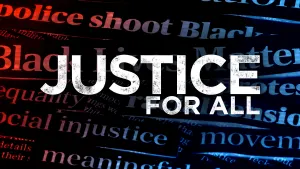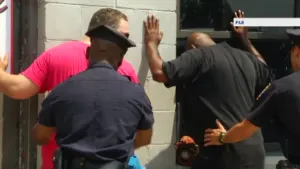More Stories
Qualified immunity is a major sticking point in bipartisan police reform negotiations on Capitol Hill and an issue that was brought into mainstream focus following the murder of George Floyd.
The federal doctrine protects police officers accused of violating the constitutional rights of citizens from being sued in civil court.
News 12 spoke with human rights lawyer and partner at Abrams Fensterman, Amy Marion, and Nassau PBA President James McDermott about qualified immunity.
"In no other place in this country or in this state or in this county, is somebody allowed to violate somebody else's rights and then be protected and cloaked with a shield of immunity,” says Marion. “It just doesn't happen and that's the problem."
However, McDermott says the protection is warranted in some cases.
"If he's (police officer) doing something within the performance of his job and he's doing it and it's just a mistake that happens, you know, should he lose his house? I don't believe so."
EXPANDED COVERAGE: Justice for All
Their opposing viewpoints echo the positions of some lawmakers and protestors, many of whom took to the streets of Long Island's towns and villages just days after Floyd's death, calling for sweeping police reform.
Jeremy Joseph, with the group LI United to Transform Policing & Community Safety, says there needs to be more police accountability.
"The police are not held accountable to the people they're meant to be protecting," says Joseph.
According to Marion, "If you're a good cop, you're never going to need qualified immunity because you're always going to act reasonable and you're always going to abide by the constitution, so the only thing qualified immunity does, it protects those who are not acting reasonably and who violate the guarantees in somebody's constitutional rights."
However, McDermott says that for the officers doing their job, "there's not a, blanket coverage, I mean a police officer can't do something that's outrageous and be protected."
The Supreme Court established qualified immunity in 1967.
It shields state and local officials, including police officers, from being sued in civil court unless they violate a person's clearly established statutory or constitutional rights.
"I've had cases that have gone to a jury trial. I've won and then after the trial, the judge, on a post-trial motion, has taken away the jury's verdict and said, 'I find that the cops acts were reasonable,'" says Marion. 'If there's no prior case, where the law has said that this act is unreasonable, then the legal theory is, there's no way that the police office would be on notice that his or her actions were unconstitutional."
McDermott said ending the protection could make police officers afraid to carry out their sworn duties.
"If you're going to sit there and pause for a second, you're going to put yourself in a position that you might get killed or the victim that you're protecting, another police officer and I'm sorry, we're the good guys, we come there to be, to help out,” says McDermott. “As much as the world's saying we're this, that, and the other thing, we're there to help out."
Qualified immunity can only be fully abolished by Congress or the Supreme Court. In March, the House of Representatives passed the George Floyd Justice in Policing Act. Among the proposed reforms - ending qualified immunity for police officers. If passed the way it's written now, officers could be sued in civil court.
Right now, four states and New York City have newly passed laws that limit or end qualified immunity.
Marion says those changes can't come too soon.
"It's really been a way to completely undercut and gut the Civil Rights Act and that's how it's been used and it's, you know, abhorrent," says Marion.
In New York state, Attorney General Letitia James recently proposed a bill called the Police Accountability Act.
It would change the state's laws regarding how officers use force and strengthen a prosecutor's ability to hold the police accountable for unjustified and excessive use of force.
James said the goal is to, "preserve lives by making sure that under the law lethal force is the last resort."
She also said that current laws give the police a blanket defense to use force and says that makes it hard for prosecutors to go after officers who abuse their powers.
According to James, "It is exceedingly difficult to prosecute police officers who kill civilians because of an expansive justification law that gives officers extraordinary wide latitude to use force."
McDermott tells News 12 he is not opposed to talking about how to create some possible reforms, but that getting rid of qualified immunity should not be one of them.
"We're living in a post-George Floyd world and you know, when you see something horrific happen, people want to make broad changes and you’ve got, you’ve got to slow everything down and make changes, but make the right changes,” says McDermott.
The George Floyd Justice in Policing Act passed the House largely along party lines and has yet to get a vote in the 50/50 split Senate.
Text and reporting by Thema Ponton
More from News 12
3:49

Grand jury declines to file charges against police officers who shot motorist in New Jersey
3:50

Shooting of unarmed motorist by Bloomfield police will be investigated by grand jury

Justice For All Town Hall: Has anything changed in NYC since George Floyd was killed by police?
3:50

Justice for All: An in-depth look at the NYPD’s neighborhood policing program
6:29

Justice For All: NYPD takes News 12 inside its police academy
5:07
